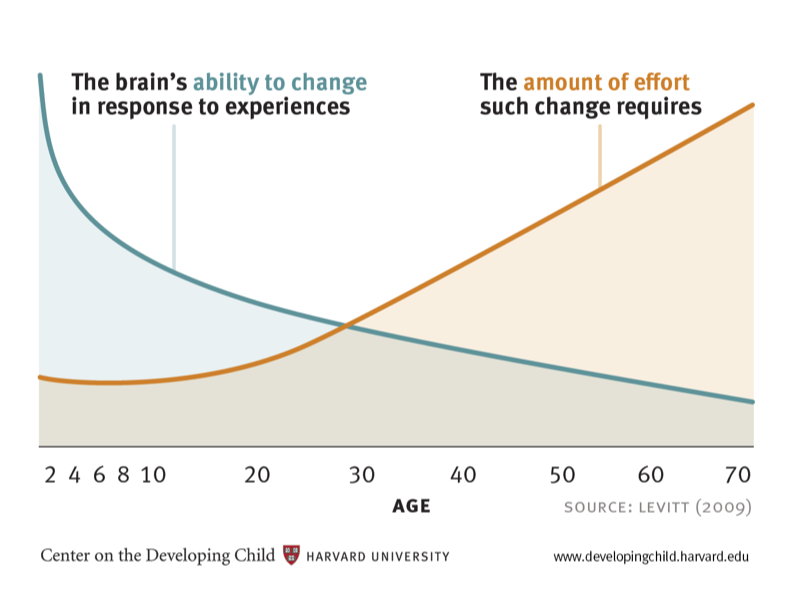Experience and Engagement
A great deal of what I share here has to do with two key aspects of parenting:
The experiences you offer your child
How you engage with your child
Experiences and engagement are intertwined. Learning happens when both are well-integrated in your child’s life.
The Five Minute Favorites and Weekend Wonders I create and share here are designed to bring experience and engagement together.
These activities have a lot to do with the realities addressed in a 2022 Atlantic article:
“Engaging kids in rich interactions—tuning in to what interests them, talking and reading to them, and letting them “talk” back—helps stimulate and strengthen the neural connections that build brain power and lay the foundation for learning. Many parents, such as those without paid leave or with punishing work schedules, have fewer opportunities to devote such attention to their children. Wealthier families can outsource the labor to professionals, but, as the country grapples with a massive shortage of child-care workers,, more parents and kids are on their own.”
Focusing on small, attainable actions that foster meaningful experience and engagement will elevate your child’s capacity to learn and live with connection.
Experience
When it comes to experiences, a whole, strange sub-culture has taken shape in the last few decades around early childhood.
For any experience you are offering, I strongly encourage you to ask yourself - why am I offering this? What does this have to offer my child and how? Is that really something that supports them at this time? Are they actually taking that from the experience?
Look at that curve in the chart above. In your child’s years of greatest responsiveness to experience, you may be consistently offering Paw Patrol and play dough and a toy kitchen. Is that what you truly want them to have, or is that simply what you see in the world around you? Children are capable of engaging with more relevant and nuanced experiences.
Experiences that offer your child material for learning and connection:
Relational interactions
The skills of daily living:
Daily errands - the market, the library, the pizza parlor, the coffee shop
Caring for your home - tasks related to tidying, cleaning, preparing food, organizing
Engaging in community - local business visits, volunteering, meeting friends in the park
Opportunities for exploration and self-expression:
Drawing, other art media
Writing
Movement
Building, constructing, creating
Purposeful movement:
Walking
Yoga, martial arts, dance
Learning an instrument
Learning through quality books
Learning through specific scenarios:
A museum visit
A walk to the park
A trip to another place
Engagement
Meanwhile, engagement has also gone to some interesting places with parenting fads, especially via social media.
Engagement is not all about feelings, secure attachment, and unconditional love. These are essential aspects of healthy relationships, but engagement is also a dynamic give and take, a sharing of perceptions, knowledge, skills, experiences.
Engagement that offers your child material for learning and connection:
Conversation about topics of interest:
From spring flowers to sea creatures to trucks
Dialogue about life experiences:
Observations during a walk
Specific aspects of your work day and your child’s school day (you want to talk about both! Don’t just ask your child what they did at school - talk about your day to foster connection and understanding of what this sharing is lke)
Spoken analysis of specific creations and of the world around you:
A drawing your child makes
The structure of a building
The mechanisms of a truck
The steps of a recipe
Shared purposeful activity and contribution:
Activities of daily living - cooking, cleaning, organizing, etc.
Contribution in community - making a dish for a gathering with friends, gathering items for a food drive, helping with a trash pick-up or at a community garden, visiting a neighbor with cookies for tea, making a card for a new baby
Use of skills: peeling vegetables or planting seeds, sharing a drawing in a letter to a family member, reading aloud to your dog or a younger sibling, setting the table
As you make your way through the week, consider what experiences and engagement your child will encounter.
Some of this you will have little control over - what your child experiences at school, for example.
Which is why you should focus on what you can do with your child - with just five minutes or an open hour during the weekend.
What could you do to approach these two components of parenting a little bit more intentionally?
Hint: the ideas found in this Learning Journal are a wonderful place to begin.
